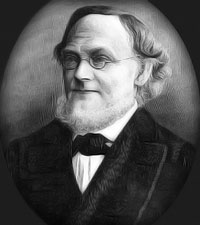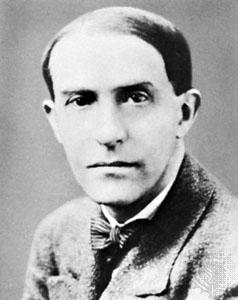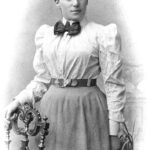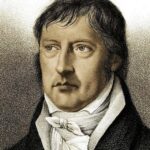March 18, 1690
Birth of Christian Goldbach (1690-1764) in Königsberg, Germany (now in Russia). A mathematician, Goldbach accomplished significant work in the theory of curves, infinite series and the integration of differential equations. But he is most known for the development of a number theory now called “Goldbach’s conjecture”.
March 18, 1733
Birth of Friedrich Nicolai in Berlin, Germany. Nicolai was one of the leaders of the Aufklärung (enlightenment) movement in Germany. By profession he was a book dealer and writer. He edited the influential journals, Allgemeine deutsche Bibliothek, and Briefe, die neueste Literatur betreffend. He worked with Gotthold Lessing and Moses Mendelssohn on the latter. His Briefe über den jetzigen Zustand der schönen Wissenschaften in Deutschland (1755) criticized Johann Gottsched, Johann Bodmer and Johann Breitinger. Nicolai also wrote novels. Among them was a satire on Goethe’s novel Die Leiden des jungen Werthers which he titled Die Freuden des Jungen Werthers (1755).
March 18, 1796
Birth of Jakob Steiner in Utzenstorf, Switzerland. Steiner discovered inversive geometry and is considered one of the greatest geometers of modern times. He discovered the “Steiner surface”, and developed the “Steiner theorem” and the “Poncelet-Steiner theorem”. His most noted work is Systematische Entwicklung der Abhängigkeit geometrischer Gestalten von Einander (1832). The chair of geometry was established for him at the University of Berlin and he occupied that chair from 1834 until his death in 1863.
March 18, 1798
Birth of Franz (changed to Francis) Lieber in Berlin. Lieber was a political philosopher who studied at the University of Jena. He encountered political difficulties in Germany and emigrated to the United States in 1827. In America he undertook the first edition of Encyclopedia Americana. He was a professor at the University of South Carolina and Columbia College. Seeing a need for a code for the conduct of soldiers for the protection of civilians he wrote Code for the Government of Armies in the Field (1863) for the Union army. Many of his ideas were later adapted to international agreements regulating conduct in war.
March 18, 1813
Birth of Friedrich Hebbel in Wesselburen, Germany. Friedrich Hebbel was a dramatist, who brought Hegelian ideas of morality, process and development into his plays. Among his noted plays are Judith (1840), Genoveva (1841), Maria Magdalena (1843), Herodes und Mariamne (1850), Agnes Bernauer (1852) and Gyges und sein Ring (1854).
March 18, 1858
Birth of Rudolf Diesel (1858-1913) in Paris, France. He was a German inventor and mechanical engineer, famous for the invention of the Diesel engine. Rudolf Diesel was educated at Munich Polytechnic. After graduation he was employed as a refrigerator engineer. However, he true love lay in engine design. Rudolf Diesel designed many heat engines, including a solar-powered air engine. In 1893, he published a paper describing an engine with combustion within a cylinder, the internal combustion engine. In 1894, he filed for a patent for his new invention, dubbed the diesel engine. Rudolf Diesel was almost killed by his engine when it exploded. However, his engine was the first that proved that fuel could be ignited without a spark. He operated his first successful engine in 1897. In 1898, Rudolf Diesel was granted patent #608,845 for an “internal combustion engine” the Diesel engine.
The diesel engines of today are refined and improved versions of Rudolf Diesel’s original concept. They are often used in submarines, ships, locomotives, and large trucks and in electric generating plants.
March 18, 1886
Birth of Kurt Koffka (1886-1941) in Berlin, Germany. Koffka worked with Wolfgang Köhler and Max Wertheimer at the University of Giessen to develop a holistic approach to psychology which is known as “gestalt psychology”. In 1927 Koffka accepted an appointment at Smith College in the United States, where he remained for the rest of his life, teaching and promoting his concept of holistic psychology.
March 18, 1886
Birth of Leopold Zunz in Detmold, Germany. Zunz was a historian of Jewish literature and led in bringing scientific rigor to the field. In his Zur Geschichte und Literatur he integrated Jewish literature with European literature and politics.
March 18, 1929
Birth of Christa Wolf in Landsberg, Germany. She was a German literary critic, novelist, and essayist. She was one of the best-known writers to have emerged from the former East Germany.
March 18, 1953
The West German Bundestag ratifies the war reparations agreement with Israel.
March 18, 1961
Franz Josef Strauß becomes the head of the conservative Bavarian political party, CSU. He was a key figure in German national politics until his death in 1988.
March 18, 1980
Death of Erich Fromm in Muralto, Switzerland (born in Frankfurt am Main, Germany). Fromm earned his doctorate at the University of Heidelberg and trained in Psychoanalysis at the University of Munich. In 1933 he immigrated to the United States where he taught at Columbia University, Bennington College and New York University. Fromm started as a Freudian but gradually concluded that social factors outweigh many of Freud’s concepts of drives. Books by Fromm include Man for Himself (1947), Psychoanalysis and Religion (1950), The Art of Loving (1956) and The Crisis of Psychoanalysis (1970).
Back to Today in German History Calendar










